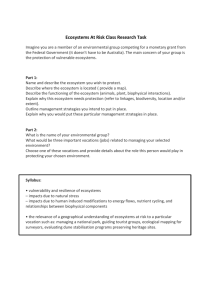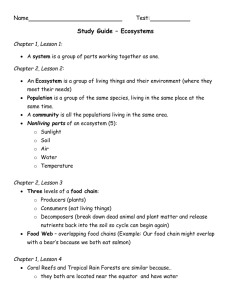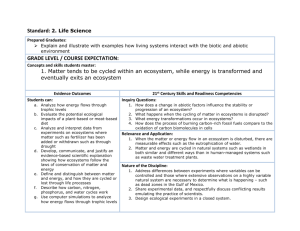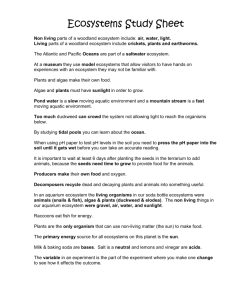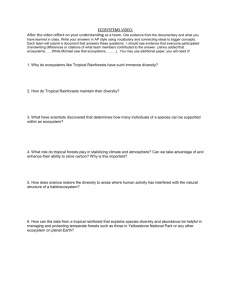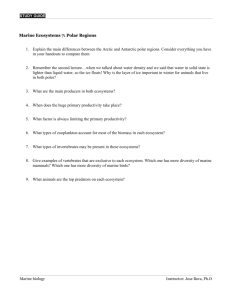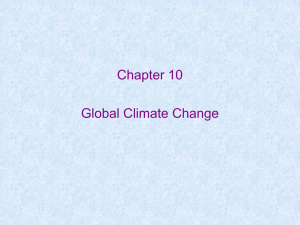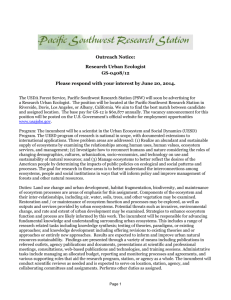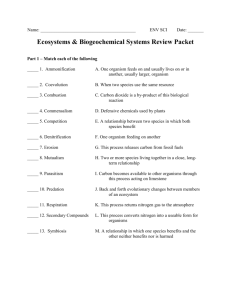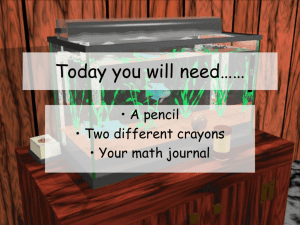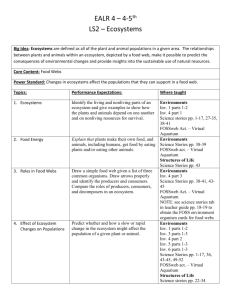Chapter 4: Ecology, Ecosystems and Food Webs Reading Guide
advertisement
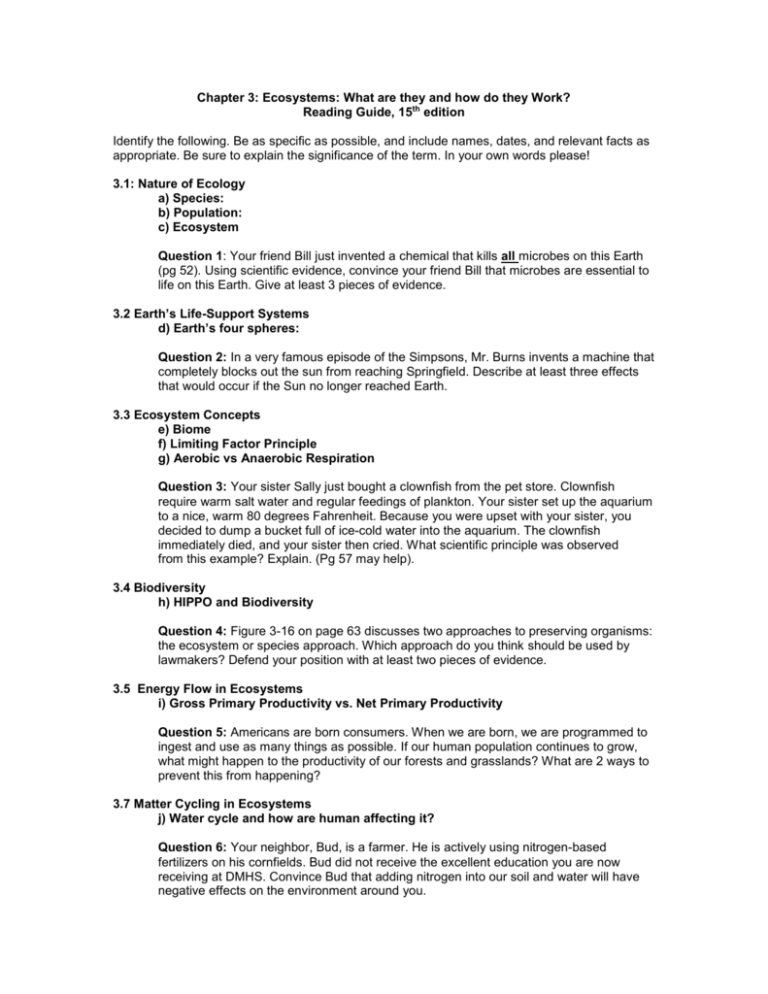
Chapter 3: Ecosystems: What are they and how do they Work? Reading Guide, 15th edition Identify the following. Be as specific as possible, and include names, dates, and relevant facts as appropriate. Be sure to explain the significance of the term. In your own words please! 3.1: Nature of Ecology a) Species: b) Population: c) Ecosystem Question 1: Your friend Bill just invented a chemical that kills all microbes on this Earth (pg 52). Using scientific evidence, convince your friend Bill that microbes are essential to life on this Earth. Give at least 3 pieces of evidence. 3.2 Earth’s Life-Support Systems d) Earth’s four spheres: Question 2: In a very famous episode of the Simpsons, Mr. Burns invents a machine that completely blocks out the sun from reaching Springfield. Describe at least three effects that would occur if the Sun no longer reached Earth. 3.3 Ecosystem Concepts e) Biome f) Limiting Factor Principle g) Aerobic vs Anaerobic Respiration Question 3: Your sister Sally just bought a clownfish from the pet store. Clownfish require warm salt water and regular feedings of plankton. Your sister set up the aquarium to a nice, warm 80 degrees Fahrenheit. Because you were upset with your sister, you decided to dump a bucket full of ice-cold water into the aquarium. The clownfish immediately died, and your sister then cried. What scientific principle was observed from this example? Explain. (Pg 57 may help). 3.4 Biodiversity h) HIPPO and Biodiversity Question 4: Figure 3-16 on page 63 discusses two approaches to preserving organisms: the ecosystem or species approach. Which approach do you think should be used by lawmakers? Defend your position with at least two pieces of evidence. 3.5 Energy Flow in Ecosystems i) Gross Primary Productivity vs. Net Primary Productivity Question 5: Americans are born consumers. When we are born, we are programmed to ingest and use as many things as possible. If our human population continues to grow, what might happen to the productivity of our forests and grasslands? What are 2 ways to prevent this from happening? 3.7 Matter Cycling in Ecosystems j) Water cycle and how are human affecting it? Question 6: Your neighbor, Bud, is a farmer. He is actively using nitrogen-based fertilizers on his cornfields. Bud did not receive the excellent education you are now receiving at DMHS. Convince Bud that adding nitrogen into our soil and water will have negative effects on the environment around you. Question 7: Recent data has shown that the Earth is getting warmer. What would happen to the hydrologic cycle if the Earth gets hotter? 3.8 How do Ecologists Learn about Ecosystems k) Gaia hypothesis l) Field vs Lab Research Question 8: Would you ever want to become an ecologist (pg 79)? Describe 2 advantages and disadvantages of having an ecologist job. Question 9: Make a list of food you ate for lunch or dinner today. Trace each type of food back to a particular producer species.

